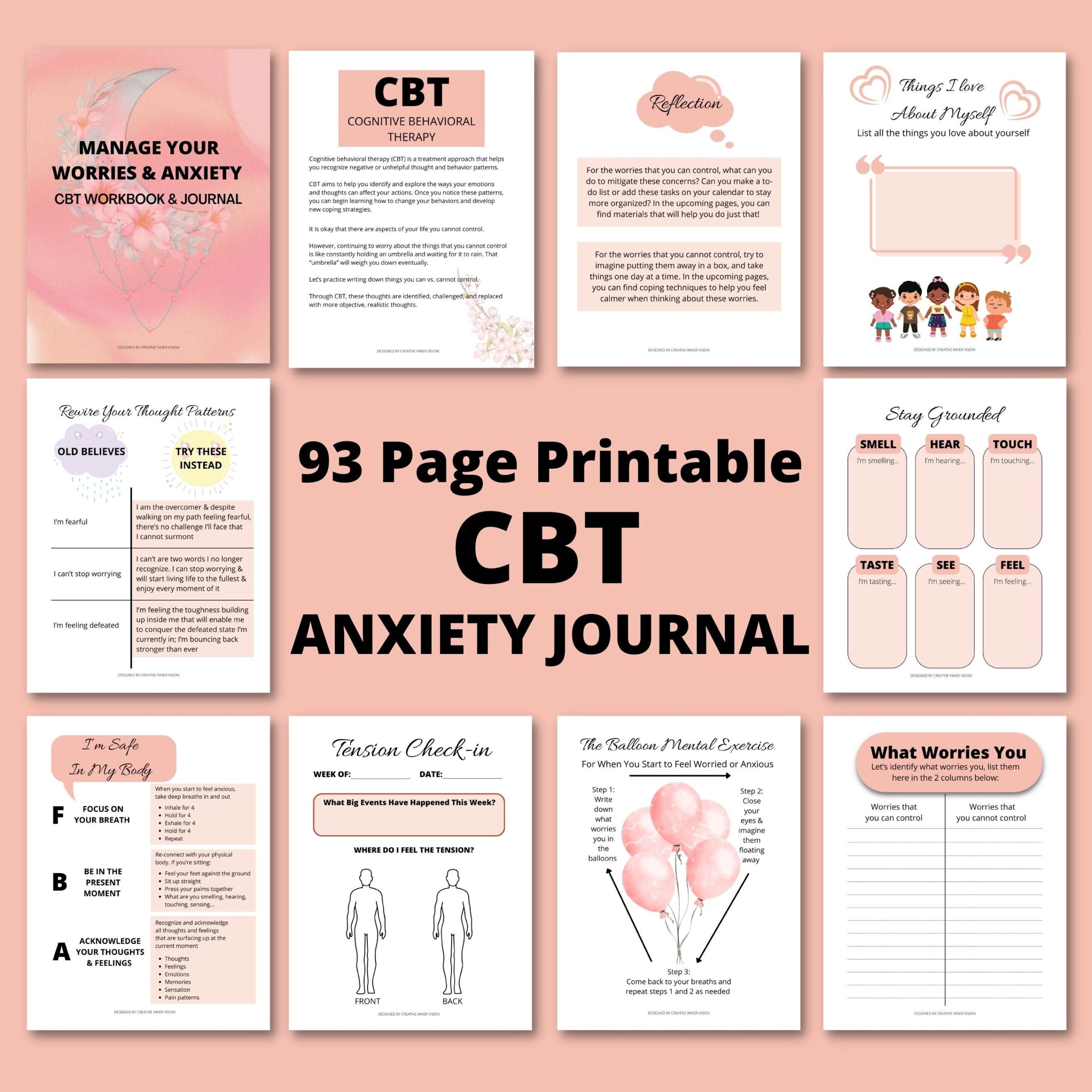Living with anxiety can be overwhelming and debilitating, but there are effective tools and techniques that can help manage symptoms and improve quality of life. Cognitive Behavioral Therapy (CBT) is a widely recognized and evidence-based approach for treating anxiety disorders. CBT worksheets are a valuable resource that can be used in conjunction with therapy or as a standalone tool for individuals looking to better understand and cope with their anxiety.
Cognitive Behavioral Therapy worksheets are designed to help individuals identify and challenge negative thought patterns and behaviors that contribute to anxiety. These worksheets provide structured exercises and prompts that guide individuals through the process of recognizing and changing unhelpful thoughts and behaviors. By completing these worksheets, individuals can gain a better understanding of their anxiety triggers, learn coping strategies, and develop healthier ways of thinking and behaving.
One common CBT worksheet for anxiety is the Thought Record. This worksheet encourages individuals to identify their automatic negative thoughts, examine the evidence for and against these thoughts, and reframe them in a more balanced and realistic way. By challenging distorted thinking patterns, individuals can reduce anxiety and improve their overall mental well-being.
Another helpful CBT worksheet for anxiety is the Exposure Hierarchy. This worksheet helps individuals gradually confront their fears and anxieties in a systematic and controlled manner. By breaking down anxiety-provoking situations into smaller steps, individuals can build confidence and resilience in facing their fears. Over time, exposure therapy can help reduce anxiety symptoms and increase tolerance for stressful situations.
In addition to these specific worksheets, there are a variety of CBT resources available online and in therapy workbooks that can help individuals practice cognitive restructuring, relaxation techniques, and other skills for managing anxiety. It’s important for individuals to work with a qualified mental health professional to develop a personalized treatment plan that incorporates CBT worksheets and other therapeutic interventions.
In conclusion, CBT worksheets are a valuable tool for individuals struggling with anxiety. By using these worksheets to challenge negative thought patterns, confront fears, and develop coping skills, individuals can take an active role in managing their anxiety and improving their quality of life. If you or someone you know is struggling with anxiety, consider exploring CBT worksheets as a practical and effective resource for treatment.
